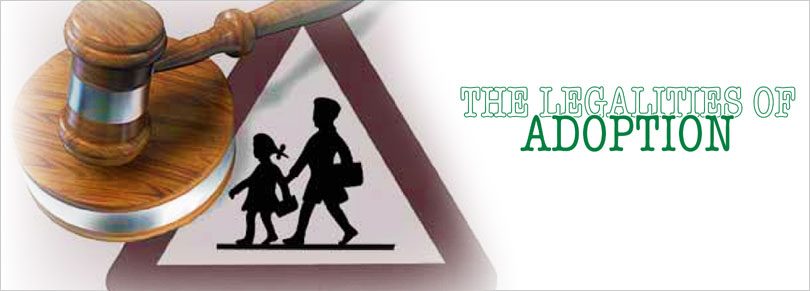Q. We are planning to adopt and we have a biological son and a daughter. Are there any restrictions on parents with biological children adopting another child? What is the legal process of such an adoption?
The Act on Adoption allows for parents with biological children to adopt. The process for adoption of all children under the Act is the same. A Petition for adoption of a child will be filed either by the adoptive parents or by an Institution/ Agency before the Magistrate designated under the Juvenile Act. If the Magistrate with the other members of the Board, on consideration of the same, finds it in order, the Petition will be allowed granting the adoption of the child to the adoptive parents. However, since this forum allows only for a general discussion on this issue it would be advisable to contact a lawyer in your city who deals with adoption cases for the specific details required in your case. The legal qualification requirements for
Adopting Parents framed by The Central Adoption Resource Authority {CARA} which delineate the persons competent to adopt children are:
- An individual irrespective of his or her marital status
- Parents may adopt a child of the same sex irrespective of the number of living biological sons or daughters
- Childless couples
The Additional Eligibility Criteria for Prospective Adoptive Parents (PAP) are:
- No child may be given in adoption to a couple unless they have at least two years of stable marital relationship.
- Couples in a live-in relationship are not eligible to adopt a child.
- To adopt a child in the age group of 0-3 years, the individual age of the PAPs should not be less than 25 years and more than 50 years.
- To adopt children above three years of age, the individual age of the PAPs should not be less than 25 years and more than 55 years.
- In case a single PAP desires to adopt, he or she should not be less than 30 years of age and shall not be above the age of 50 years.
- The PAPs should have adequate financial resources and good health.
- Adoption of siblings is allowed.
- An un-married or single male person is not permitted to adopt a girl child.
Q. We are planning to adopt a child. I have heard that there are open or closed adoptions? What is recommended? Is it possible to lose a child to birth parents after they are adopted? What is the legal recourse?
There are Open, Semi Open and Closed adoptions indicating the level of information available to the adoptive parents and the person giving the child in adoption. Open indicates that both parties have all material information on the other party and closed is at the other end of the spectrum where no information is volunteered or exchanged. Semi Open indicates a situation between the two ends. In India it is usually a Closed Adoption as the child is usually abandoned and the adoption agency gives the child in adoption after completing the legal procedure. However, if the child is being given in adoption by the birth parents it will necessarily be an open adoption unless both parties agree to keep it closed, thereby denying the child its right to know the birth parents. Since it involves the rights of both the parents and the child it is something that needs to be worked out by the individuals concerned.
It is usually not possible to lose an adopted child to the birth parents as in the case of abandoned children there is a procedure before they are declared ready for adoption. However, in case a child has just been taken on an oral assurance from the birth parents there is a chance that the adoptive parents could lose the child if the birth parents are able to prove their case in Court. However, if proper procedures have been followed the chance of losing the child to the birth parents is very low.
Q. We are a Christian couple and as we are unable to have biological children we plan to adopt. I have heard that Christians can only be guardians for the child they adopt and that we cannot become legal parents of an adopted child. What does this mean and how can we handle this issue?
That was the situation prior to the passing of THE JUVENILE JUSTICE (CARE AND PROTECTION OF CHILDREN) ACT, 2000. With this Act, Christians are now able to adopt and become the legal parents of a child adopted under the provisions of the Act. The earlier system of Christians only being the guardians of adopted children caused a lot of issues; after the child reached majority the parents ceased to be the guardians of the adopted child and hence the parents had to leave a Will. The child would not automatically inherit the property as is the case with biological children. With the passing of this Act the adoptive parents and whoever represents the child to be adopted, can now execute an Adoption Deed before the District Revenue Registrar subject to all other criterion being satisfied.
Mrs. Anita T is an advocate and has been practicing in the Chennai High Court and the Lower Courts for the last 20 years.






Leave a Comment